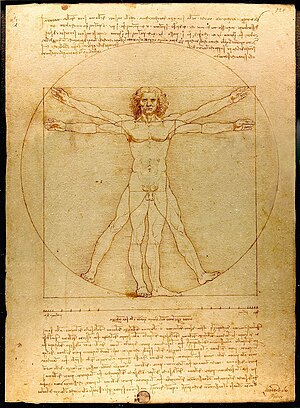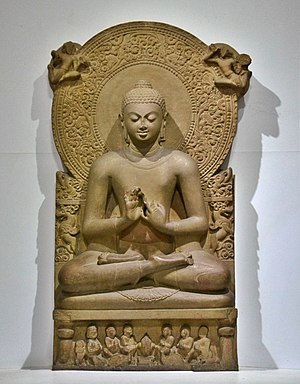Dear Readers,
Today I want to discuss the idea of the luminary with you. Luminaries are, to me, people who transcend the normal threshold of brilliance into something entirely different.
The difference, as I see it, is that these people do not garner the same reaction from others as a normal person might. If you see an example of greatness, you will ask, "Who is that person?" But there are those rare individuals with such brilliance, charisma, and/or power that everyone who has the time to feel their effects will instead ask, "What is that person?" Those who provoke this question are what I call luminaries.
When they appear, these people send shockwaves through their contemporary worlds. Their lives, in themselves, can act as the dam that can change the flow of an entire time stream. They are the ones who can set the trends in human thought. They are, in short, just the sort of people that the University of Constantinople is looking for, and just the sort of people who I encourage you all to be.
I've thought of a few examples. Their histories appear below, written as they would appear in your time stream. Except for one case. See below.
The Buddha (aka Siddhartha Gautama): This is a man who taught humanity how to be free of itself and to recognize the beauty in all things. His teachings came at a time when technology could not provide nearly the food or medical care that we have today, and yet somehow he managed to convince people to be free of attachment and to seek compassion above all things. Furthermore, as if he could somehow predict his effect on future generations, he tried to ensure that they would not view him as a god. Most important, he taught his followers how to free their minds and think:
"Believe nothing, no matter who has said it--Not even if I have said it!--unless it agrees with your own reason and common sense."
In my research, there are few greater than Gautama Buddha, and indeed, people wondered if he was a god manifest on earth rather than a mere man.
Jesus: This man, though he claimed to be divine, had an effect so profound on humanity that it would be an injustice not to include him in this list. In a time of Roman oppression and immorality, corruption in the monotheistic temples that paralleled the polytheistic ones, and generalized oppression, he taught compassion. Most important, he taught that there is more to life than just the temporal existence, and caused people to look to the future and their legacies. It is no wonder that many believed him to be the son of their deity.
Leonardo da Vinci: A painter, inventor, and scientist whose designs and anatomy work were centuries ahead of their time. da Vinci invented the battle tank, the helicopter, and countless other devices in an era when most people could not even read. His devices were so ambitious that many of them could not be built until far, far later. And as if this great achievement were not enough, he somehow managed to produce the greatest painting in history to that point. Why was he a luminary? With such great achievements, it makes you wonder: Was he a brilliant man, or just a time traveler?
Archimedes: Archimedes discovered many basic physical principles and invented a device known as the Claw of Archimedes, which could lift Roman ships out of the water and destroy them. Archimedes' screw could pump water with ease. He discovered a way to determine if a crown was pure gold without melting it down. There are even rumors that he invented a heat ray weapon, long before the discovery of electricity. Of course, his contemporaries thought him a great scientist, but in later eras he became so much more. As the Greeks' knowledge faded from the world, Archimedes became something more of a wizard in the contemporary mind.
Abraham: His monotheism and optimistic views on life and death sprung from an era and culture of polytheism which said everyone enters an eternal torture when they die. More than simply human, he is remembered as a man who had the ear of the creator of the Universe. I can't corroborate these claims, of course, but he must have been pretty impressive to acquire such a reputation.
Charles Darwin: The theory of evolution has led many to believe this man was a demon incarnate. Not bad for a person who could have stood in for any male character in Pride and Prejudice. Furthermore, his discoveries did something philosophically critical for the human race. He made it so that belief could now be based on choice, rather than necessity. Whereas before, gods provided the only rational explanation, after Darwin one could take or leave religion based on its usefulness. Demon? Hah. Luminary? Yes.
Hieronymus Bosch: One need only look at The Garden of Earthly Delights to see that this great painter knew something about what would happen in the future, somehow. It conjures images of the Woodstock festival, or the riots in major cities in the 1960s, or the industrial age, or so many other trends in human thought. In fact, science fiction writers have wondered if Bosch, like da Vinci, might be a time traveler.
Charlemagne: A man believed to be blessed by God to remake the Roman Empire as a holy construct. He resurged literacy in Europe and made armor and weapons the likes of which no other country could copy. The Caliph of the Arabs was so impressed by Charlemagne that he gifted an elephant to him. His contemporaries renamed him not "Charles the Great," as his name translates, but rather they created an actual new name in whole cloth that would combine the name Charles with the legend of his greatness.
Rameses II/Rameses the Great/Ozymandias: Percy Bysshe Shelley put it best: "My name is Ozymandias, King of Kings. Look on my works, ye mighty, and despair." While the works are now just sand, the effect of Rameses II on human culture, from so many millenia ago, is unquestioned. His people regarded him as a god, and the "gods" that descended from him called him their "Great Ancestor."
Adolf Hitler: I include him on this list with a heavy heart. If not for the wrong ideas that he learned in Vienna as a young man, you could live in a time stream where Adolf Hitler did not terrorize the world and murder millions of people. In a world where he instead did good, great things. However, I cannot question that people believed your Hitler to be so great a man that he became synonymous with Germany itself. He wished, and Germany moved to fulfill. He was more than a man, and became a country and an ideology, albeit a very evil one. And the shockwaves of that evil are still felt today. Remember him so that you do not become him.
These are not the only examples, but they are striking ones. Perhaps you can suggest more.
Always,
Dr. John Skylar
Chairman
Department of Anachronism
University of Constantinople




![Reblog this post [with Zemanta]](http://img.zemanta.com/reblog_e.png?x-id=43524c9a-205c-49d8-b477-eebfb823b6e5)
No comments:
Post a Comment